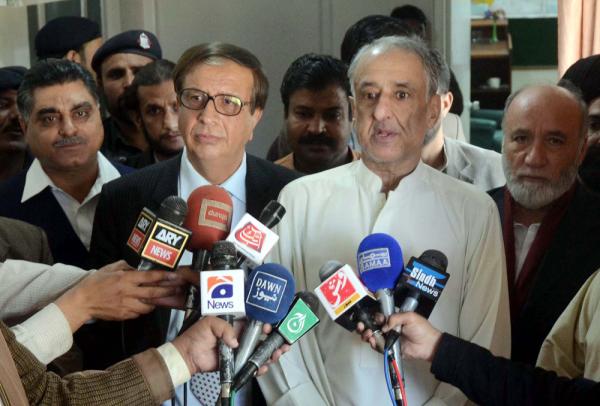Interviews were conducted by UPI Next PakPolWiki team before the May 11 elections.
Muhammad Ali, 27, a government employee and resident of Margalla Town Islamabad voted for the first time in the 2008 election and said that it was a great experience for him. “I voted for the winning PML-N candidate,” Ali said. “His performance, though, has disappointed me, but I still strongly believe in elections and would again vote in the upcoming election. It gives me power to decide who will govern us. I will decide it once all parties nominate their candidates for the election. Last time, I voted only keeping in view my party affiliation, but this time I will not vote for old faces.”
Nusrat Shaukat, 45, a housewife and resident of Rawal Town, Islamabad said she would not vote in the upcoming elections. “What has democracy given us?” She asked. “The prices of household commodities have increased many times during last five years. Corruption is rampant among our leaders. They don’t care about people,” she said. She said that the same old faces would reappear after the upcoming elections.
Zubair Ahmed, 20, a masters student at a local university in Islamabad is enthusiastic about taking part in the upcoming elections. “It will be the first time that I vote. I am looking forward to it. The present faces have disappointed us and if we have the same government for the next five years, people will lose their confidence in democracy.” He said he would vote for Imran Khan’s candidate. “Both PPP and PML-N have governed Pakistan for many years but they have not delivered,” he said. “It is time for a change and Imran Khan is the best option.”
Of five potential voters interviewed, including two young people, two elderly citizens (40+) and a middle aged woman, all of them said, when political parties were in power, they wanted information pertaining to performance indicators such as: statistical information on rampant corruption, economic performance, infrastructure developments, educational spending, and inflation. Many said they thought times were better under military rule, which clearly hints at the importance of performance indicators for the citizens ( who are potential voters).
A small entrepreneur said, “We have seen major political parties performed badly twice and thrice, so it’s better not to waste our votes on the same people.”
According to one low-income family, “Our major concern is inflation which is suffocating our lives, so any political party which promises to ensure a better quality of life will get our votes.”
A worker said, “It doesn’t make any difference to us whether it is a civilian government or a dictatorship, things will remain the same for us. We are not expecting any big change after these elections.”
A young person commented on education, “Our education system is in such shambles. We want the next government to work to make our education system secular, free of any ideological content and job-oriented because the world we interact with, by and large, is predominantly secular.”
An educator said, “Pakistan is a country which is splintering in many directions, into different ethnic, religious, national and sub-national identities. This leads to the development of a typical political set up which represents groups, rather than people.”
One worker said he was not going to vote for anyone, and that he believed no one could ease the misery he was facing. Thus, he said what he needed before anything else was hope for change. One of his friends in Karachi wants security and the knowledge that no one else would take his vote. Another said he wanted a copy of the candidates’ platforms and to know about their records, but that he would vote for the PPP party because his grandparents were voting for that party.



Comments